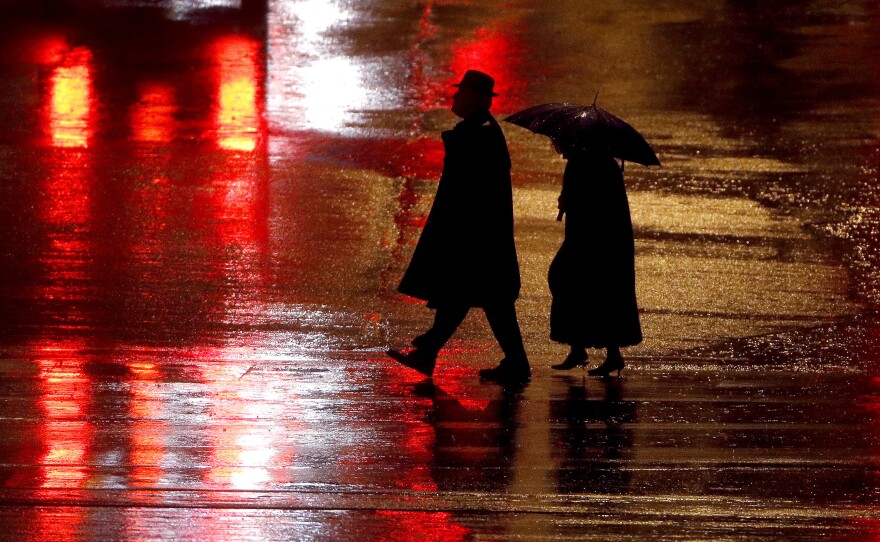Attempting to get to work on foot, walk the dog or enjoy a simple after-dinner stroll is becoming an increasingly risky activity, according to new estimates by the Governors Highway Safety Association, which found the number of pedestrian deaths in the U.S. has reached a 28-year high.
A new report by the GHSA determined about 6,227 pedestrians were killed in motor vehicle crashes in 2018 — a 4 percent increase over 2017 and the highest mortality rate since 1990.
"While we have made progress reducing fatalities among many other road users in the past decade, pedestrian deaths have risen 35 percent" since 2008, Executive Director Jonathan Adkins said in a statement.
"The alarm bells continue to sound on this issue; it's clear we need to fortify our collective efforts to protect pedestrians and reverse the trend," Adkins added.
The nonprofit group, representing highway and safety offices around the country, identified a handful of factors contributing to the shift, including the popularity of SUVs and trucks, which are more likely to kill a human because of the size and weight difference.
"[T]he number of sport utility vehicles (SUVs) involved in pedestrian deaths has increased by 50 percent since 2013. By comparison, (non-SUV) passenger cars' involvement in pedestrian fatalities increased by 30 percent over the same time period. Although passenger cars still account for the majority of pedestrian deaths, SUVs – which generally cause more severe pedestrian injuries – make up an increasingly large percentage of registered vehicles."
Bad behavior in and out of cars is also to blame. The ubiquity of smartphones over the past decade "can be a significant source of distraction for all road users," said the report. Drivers are also paying less attention as they do other things, such as falling asleep or speeding. And, in about half of traffic crashes that ended in pedestrian fatalities in 2017, either the driver or pedestrian or both reportedly were impaired by alcohol.
There's also the simple fact that population growth naturally means more people are on the street.
"[T]he 10 states with the highest population growth from 2017 to 2018 – Arizona, Colorado, Florida, Idaho, North Carolina, Nevada, South Carolina, Utah, Texas and Washington State – had an overall five percent increase in the number of pedestrian fatalities during the first six month of 2018 compared with the same period in 2017."
A survey cited in the analysis estimated the number of Americans walking to work climbed about 4 percent between 2007 and 2016.
The GHSA reports most fatal crashes take place after dark and those nighttime fatalities are rising much faster than deaths in daytime. "From 2008 to 2017 the number of nighttime pedestrian fatalities increased by 45 percent, compared to a much smaller 11 percent increase in daytime pedestrian fatalities."
Apparently, the safest place to try to get from one side of the street to another is New Hampshire, according the findings. The state reported only one fatality in the first six months of 2018, while New Mexico had the highest rate of pedestrian deaths per resident population. (California reported 432 pedestrian fatalities, more than any other state.)
Arizona, California, Florida, Georgia and Texas accounted for almost half — 46 percent — of all deaths.
"Crossing the street should not be a death sentence," said report author Richard Retting, who suggested improvements to road and vehicle design should be more broadly implemented despite their costs.
Copyright 2019 NPR. To see more, visit https://www.npr.org.






